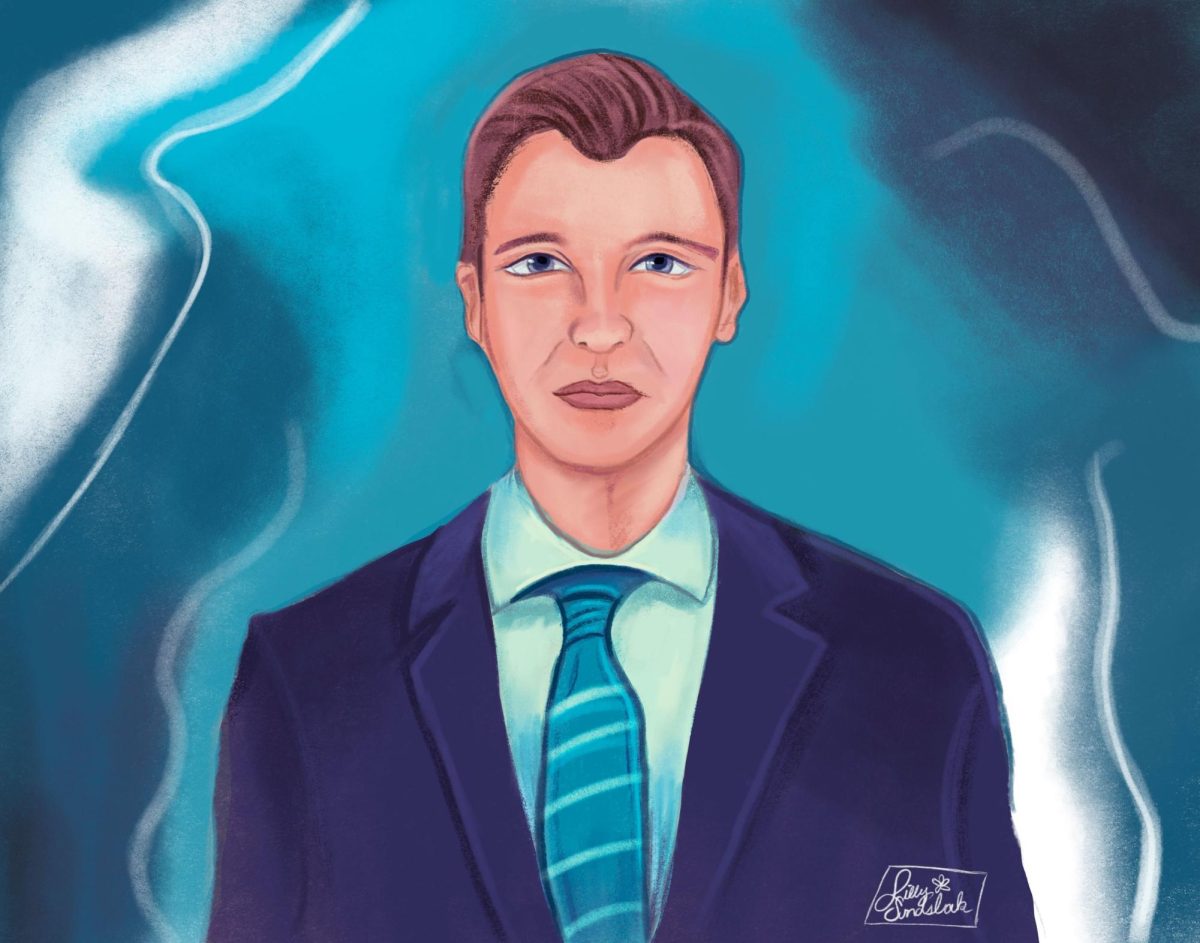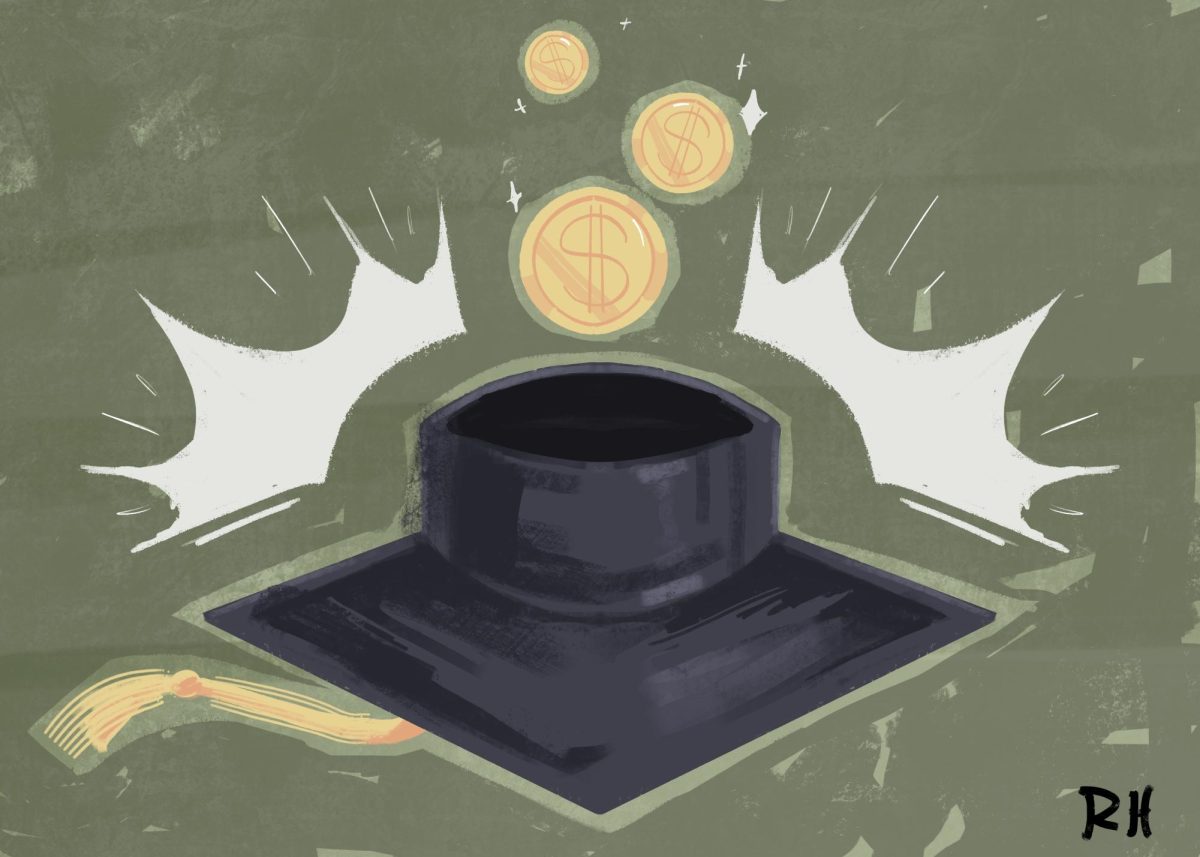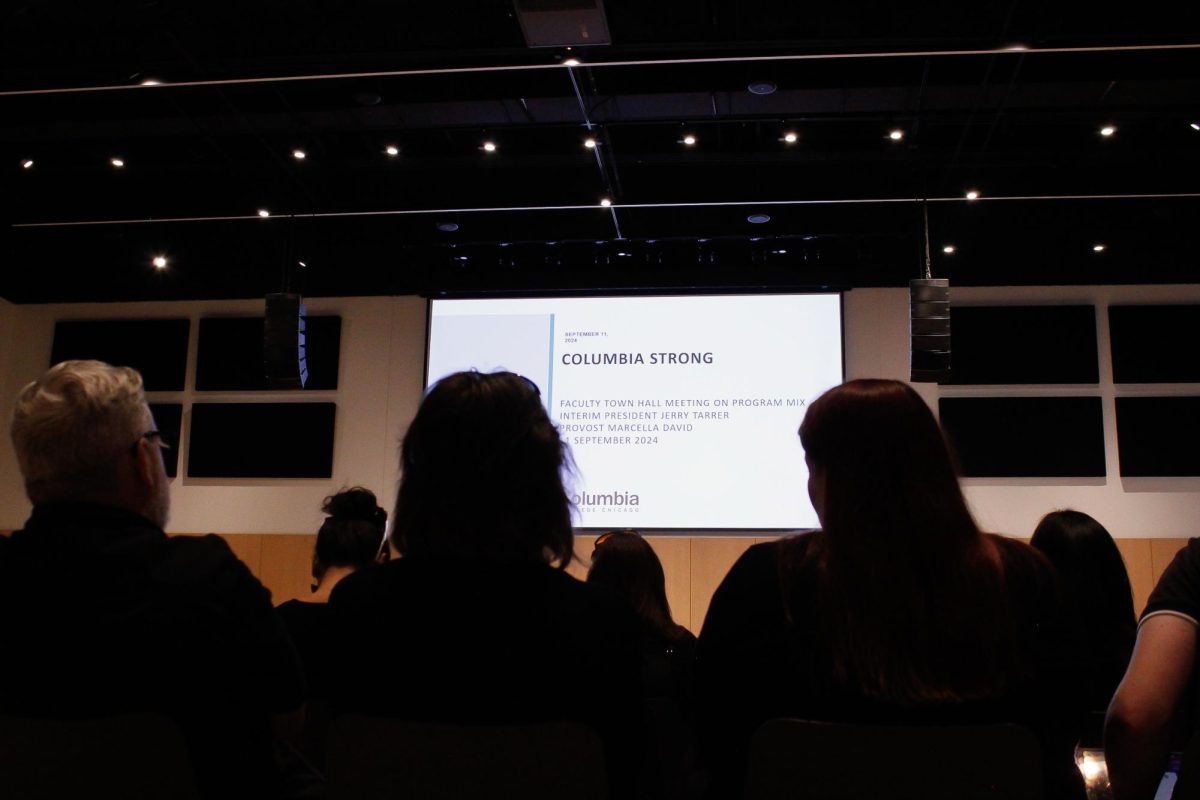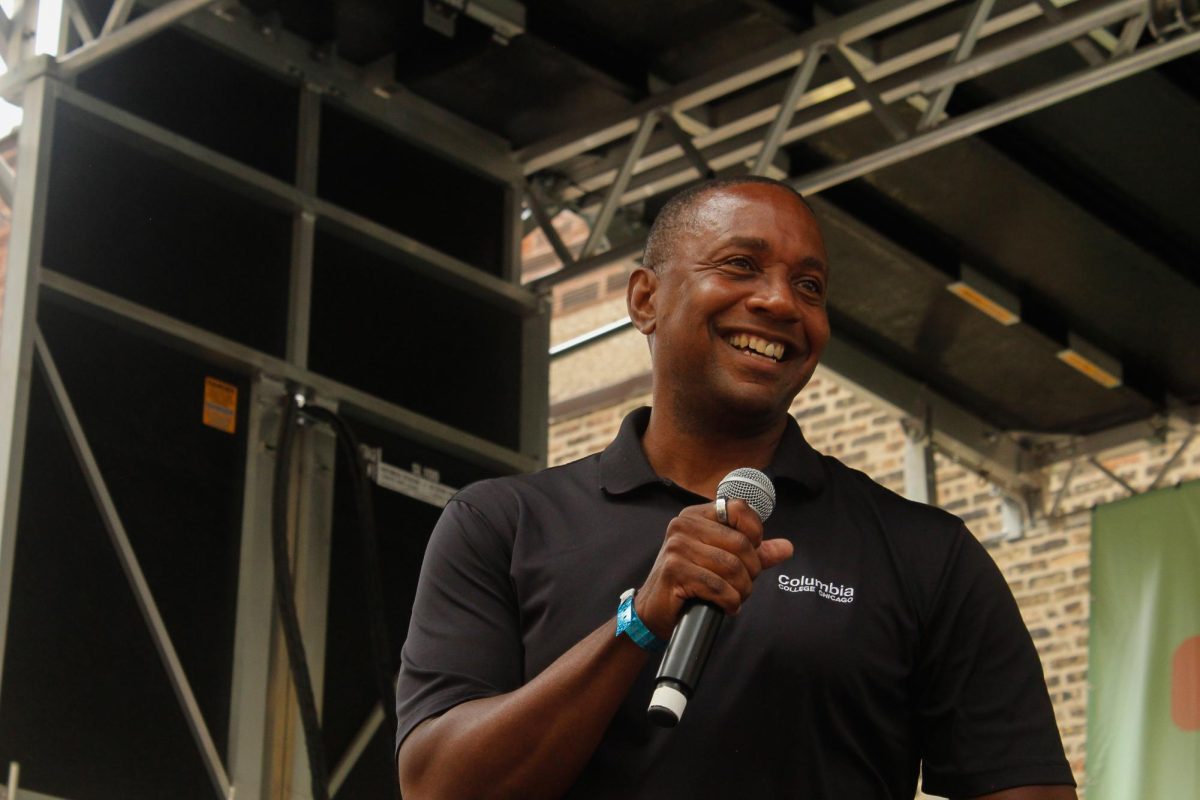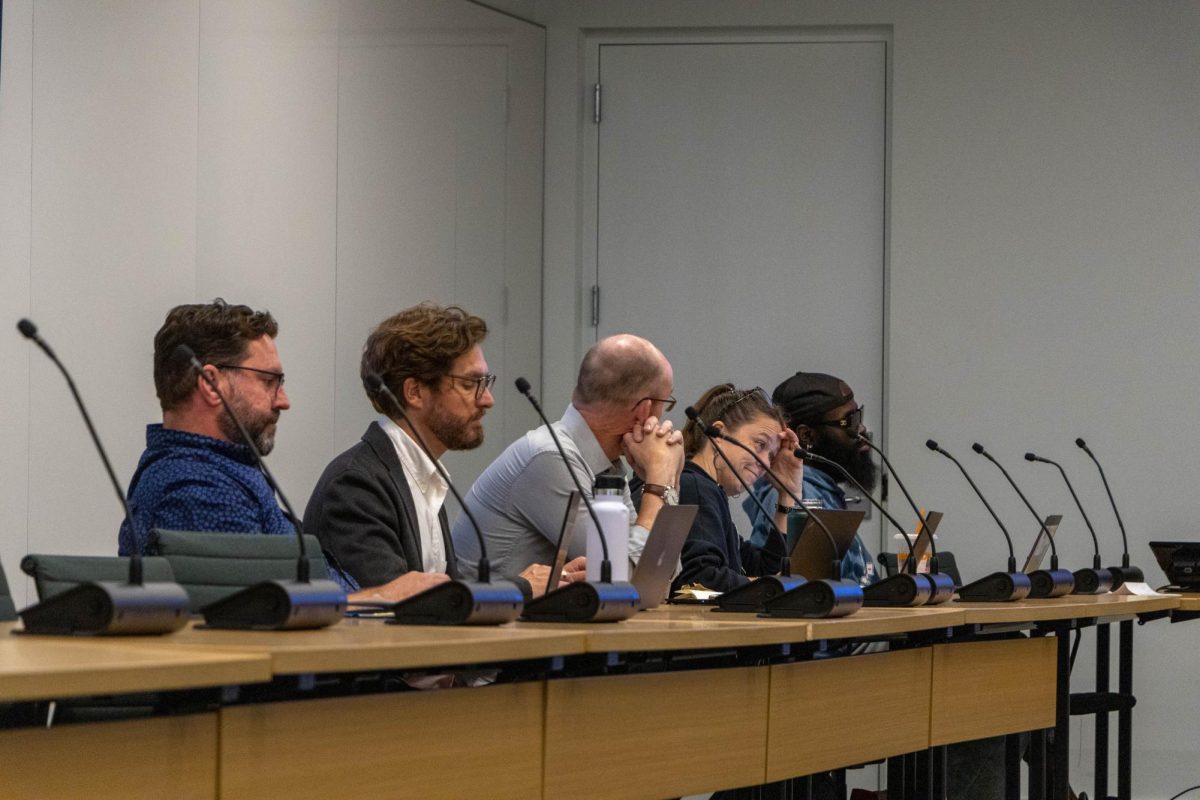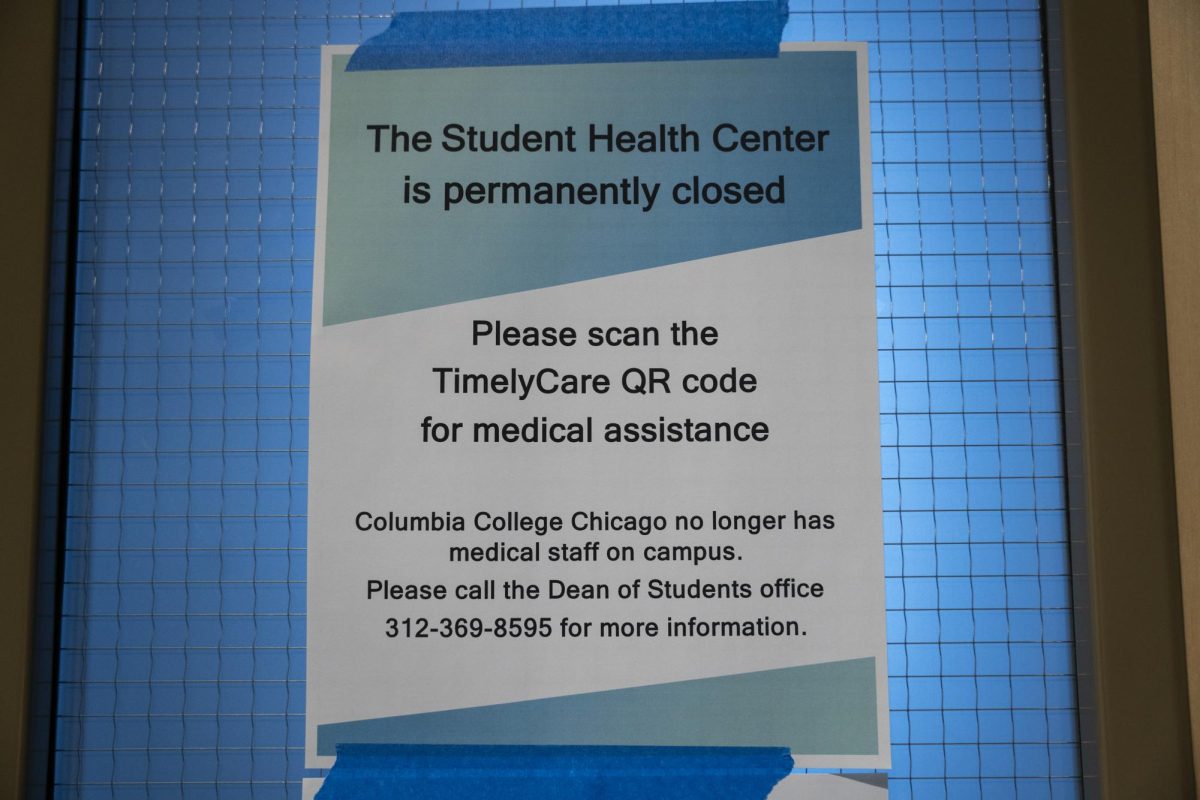Columbia’s Board of Trustees did not force out President and CEO Kwang-Wu Kim, the board chair told the Chronicle.
In an exclusive interview on Monday, Feb. 26, John M. Holmes said Kim’s decision to resign on July 1 was his alone.
After Kim shared his intention with Holmes on Feb. 9, five days before the campus-wide announcement, Holmes said he called current Senior Vice President and CFO Jerry Tarrer to ask him to be interim president following Kim’s departure.
In a wide-ranging conversation that took place off-campus, Holmes talked about the impact of the historic part-time faculty strike, his optimism for the future of the college and his perspective that among the college’s general education offerings, there are “a lot of courses that are underutilized and requirements that are outdated.”
The board has asked Kim to prepare a report with recommendations for how the college can address a $38 million deficit. Kim has said the college will make $19 million in initial cuts and may need to merge or close academic programs and lay off full-time faculty with tenure appointments.
He is scheduled to present the report to the Faculty Senate on Wednesday, Feb. 28. The senate will review and provide feedback by April 10. Kim then will present his final recommendations to the board on May 2.
Columbia’s deficit is at a “crisis,” Holmes said. “Time is of the essence.”
The strike
Holmes said last fall’s seven-week strike by the part-time faculty union played a “significant” role in Columbia’s conversation around curbing the deficit.
“The strike accelerated the timeline of this conversation,” Holmes said, adding that he was disappointed by the length of the strike and its possible harm to the reputation of the college.
The union, which is planning a town hall on Friday, March 1, said in an email this week that the college is “on the verge of disaster.”
Holmes said the current financial concerns are “not overstated.”
“It’s very real,” he said.
Asked why the college didn’t simply settle with the Columbia Faculty Union, ending the strike sooner, Holmes said the union was asking for “guaranteed employment” and “essentially giving tenure” to part-time instructors.
“Columbia College exists to provide amazing educations to our students,” he said. “It does not exist to provide guaranteed employment to their work. And so that was the fundamental issue at the beginning that took some time to work through. I’m proud we ultimately did work through that.”
He said the college was able to give “a number of accommodations” to part-time faculty, which ultimately led to a settlement.
“I know the majority of our faculty did not want to strike,” he said. “I know they much prefer being in the class with the students that they care about. And I know it was hard on everybody, particularly the students, to have it go on.”
The president’s report
The college is expected to make structural changes, including merging departments and eliminating one or more of its four schools, which are the School of Media Arts, Fine and Performing Arts, Liberal Arts and Sciences, and Graduate Studies.
Asked if he had any message for faculty worried about programs closing or about layoffs, Holmes said the focus of the trustees is on students. “We want to make sure we are providing an educational opportunity that students desire,” he said.
Holmes sent an email to the Columbia community on Feb. 22, saying that the college is looking at more general subjects courses in the context of student’s majors.
Lambrini Lukidis, associate vice president of Strategic Communication and External Relations, said the school would do this in accordance with the Higher Learning Commission’s perimeters to retain their accreditation.
Holmes said he’s heard anecdotally that faculty recognize the changes will be “tough.”
“But again, these are changes that we’ve needed to make for a long time,” he said.
Holmes said with the changes the college will face in the coming weeks, including Kim’s departure, he and the board’s primary focus is students and their educational opportunities.
“We’re just in a period of uncertainty, and uncertainty is fueling a lot of that anxiety,” he said. “Once the plan comes out, my hope is that everyone will look at it and say, ‘Wow, this makes a lot of sense.’”
Holmes acknowledged that he is not an academic and is relying on Kim and the faculty to figure out how to streamline the core general education requirements.
He said the goal is to create a curriculum that is appealing to students and efficient for faculty.
He described the process of deciding that curriculum and possible restructuring as a “conversation” with all of the stakeholders.
Asked about the urgency and why the college didn’t take a more methodical approach earlier, Holmes said the strike exacerbated the financial problems.
“It was the compelling event that we needed to address these fundamental things,” he said, “and time is of the essence when you have a deficit the size of ours relative to the size of the endowment. We need to move quickly.”
The college’s “Statement of Policy” outlines the procedure for the board to ask the president for a report.
“This plan allows us to really dig deep and look at these things in an expedited time period and then make the changes that we all agree we should make,” Holmes said.
He was hopeful about the end result.
“It’s a moment of uncertainty, but I am energized by it,” Holmes said. “The time is now to shape what’s next.”
The role of the board
Holmes, who is chairman, chief executive and president of AAR Corp, an aviation service provider headquartered in Wood Dale, Illinois, joined the Board of Trustees in 2012. All trustees on the board are volunteers and not paid.
“Everyone’s heart is in this,” Holmes said, referring to curbing the college’s deficit spending.
Holmes, who holds a bachelor’s degree from the University of Illinois Urbana-Champaign and a master’s degree in business administration from the University of Chicago, said the board is committed to Columbia.
“I believe there really isn’t a place quite like Columbia. It’s unique in the world and has a unique vibe. We’re committed to preserving that student experience.”
The Chronicle asked Holmes about the pandemic-related bonuses the board gave to Kim and other presidential COVID members. These bonuses, as well as Kim’s deferred compensation, were a major flashpoint during the part-time faculty union strike.
Why were the college’s security guards or other frontline workers not compensated instead?
Holmes said that although he was a member of the board at the time, he was not involved in the conversations about the bonuses and did not know the rationale behind them.
“In any organization, you want to try to attract and retain the top talent,” Holmes said.
When Holmes became chair of the board in May 2022, he said he approached Kim about hosting a fundraising gala because Columbia needed an “anchor event.”
Holmes said funding from the gala raised about $1.5 million in the last two years, an amount he hopes to triple.
The galas are particularly important for the endowment of the college, which Holmes said is like a savings account.
The college is now dipping into that endowment to keep operating because its revenue from tuition is down as enrollment has decreased.
“This is why all these changes are happening,” he said. “The outcome would be a better experience for students that will make more sense financially for the college and then a better experience for the students will ultimately attract more students, and we’ll get back into growth and replenishing the savings I’m talking about.”
Holmes reiterated what he told the Chronicle at the gala in December. The board has no plans to turn the college into a for-profit business. He said that while ideas were floated during the strike to merge Columbia with another school, they were just ideas and not something that is currently being considered.
“Right now our primary focus is to make sure we can survive, that we can exist for another 125 years as an institution,” he said.
Spanish Digest
El lunes 26 de febrero, el Chronicle hizo una entrevista exclusiva con la junta directiva. Según John H. Holmes, el presidente de la junta, la decisión del Presidente y CEO Kwang-Wu Kim a resignarse fue su propia decisión, sin presión de la junta directiva. Mientras la escuela se queda con un déficit de $38 millones, Kim preparó un formulario que recomienda que la escuela combine o corte programas académicos, y suspender a los empleados con nombramientos permanentes. El formulario recibirá la realimentación y se presentará de nuevo el 2 de mayo. Según el informe del presidente, para crear programas más generales, la universidad también espera eliminar al menos una de las cuatros escuelas: Artes Multimediales, Artes Bellas y Escénicas, Artes Ciencias y Liberales y Estudios de Postgrado. Holmes dijo que la meta es crear un plan de estudios que sea atractivo a los estudiantes, y eficiente para la facultad.


